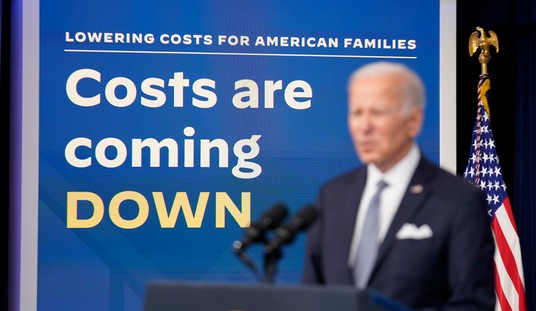Progressives are desperate to pass “American Innovation and Choice Online Act” (AICOA), their last chance to massively expand the size and scope of government before the midterms. Lucky for conservatives, it looks like the left’s push for an amendment that would increase Big Tech censorship has shattered AICOA’s chances of becoming law.
S. 2992 would weaponize antitrust law to allow Biden bureaucrats to reshape the economy in service of a woke social agenda. Republicans should vote against any version of the bill, let alone one that includes a poison pill amendment that exacerbates conservative censorship.
The bill makes a litany of actions unlawful for companies over a government-determined size. The most notable provision prohibits targeted companies from promoting their own private-label products next to offerings from competing businesses on the platform.
In a weak attempt to convince conservatives that the bill bans Big Tech censorship, Section 3(a)(3) of the bill prevents targeted companies from“[discriminating] in the application or enforcement of the terms of service of the covered platform among similarly situated business users in a manner that would materially harm competition.”
Of course, this red herring provision does not actually address Big Tech censorship – it would simply put unelected bureaucrats in charge of content moderation decisions that only seem to go against conservatives. As a whole, the bill puts companies in a “mother-may-I” relationship with the Biden administration. Marrying Big Tech and Big Government will not lead to a scenario that is good for conservatives online.
Recommended
Empowering the Biden FTC in particular should be of particular concern for conservatives who may be flirting with the idea of voting for this bill. FTC Chair Lina Khan, who is presiding over an agency-wide exodus because of her “abusive” and “tyrannical” leadership style, has called for using antitrust to go after so-called “disinformation.” FTC Commissioner Rebecca Slaughter has called for the government to use antitrust authority to confront “systemic racism.”
A potential floor vote on S. 2992 has been pushed into July, despite assertions from bill sponsors that the bill would get a vote before July recess.
Why the delay? Several Senate Democrats sent a letter to Sen. Amy Klobuchar demanding a poison pill amendment to the bill that would make it easier to continue censoring conservatives online.
Sen. Chuck Grassley (R-Iowa) says that Republicans will walk if the proposed amendment is added. Yet the bill sponsors are willing to say anything to their colleagues in hopes of garnering more support and get their bill to 60 votes. They contradict each other, even as they stand next to one another, and flip flop on previous statements depending on their audience.
During a recent press conference, Sen. Amy Klobuchar (D-Minn.) said this bill is “not focused on content” and Rep. David Cicilline (D-R.I.) said nothing in the bill would keep Big Tech from doing what “they currently do to moderate content and prohibit hate speech.” Conservatives know this is truly about speech liberals in Silicon Valley don’t agree with.
At the same press conference, Rep. Ken Buck (R-Colo.) said the bill needed to pass to address “the threat to free speech that Big Tech poses.” However, in early April, during a segment on Rep. Matt Gaetz’s podcast, Rep. Ken Buck admitted the political reality of having “a president, a Democrat president in the White House, who will not sign a bill that harms the kind of censorship that the Democrats have appreciated in the last few years.”
Rep. Buck either doesn’t know or understand what his bill would do or is disingenuously attempting to fool colleagues by claiming the bill would address conservative bias. Either is possible – Rep. Buck recently admitted to not understanding antitrust law at all.
Rep. Cicilline responded to his Senate Democratic colleagues (despite the letter being addressed to Sen. Klobuchar) saying that the proposed pro-censorship amendment “is already reflected in the base text of the bill.”
Despite all this back and forth from politicians, the fact remains that S. 2992 does not address conservative censorship. AICOA is an antitrust bill that increases government power, not a content moderation bill. Putting Washington bureaucrats in charge of content moderation would make conservative censorship worse, not better. Republicans should hold firm and vote against any version of this antitrust Trojan horse.
Tom Hebert is federal affairs manager at Americans for Tax Reform and executive director of the Open Competition Center.
























Join the conversation as a VIP Member